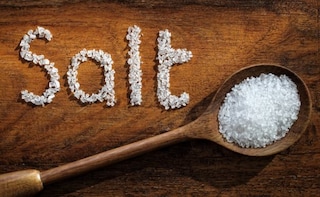Love salty foods? It is hard to stay away from French fries, pakoras and wafers as they are immensely satisfying to munch on. While we all are aware of that fact that high quantities of salt intake can hamper our health by leading to high blood pressure and other health issues, small amounts of it may actually prove to be beneficial. In fact it is commonly perceived that eating salty foods may make us thirsty, and as such we commonly resort to water or other beverages post indulging. However, according to a new study done by Delbruck Center for Molecular Medicine in Germany, it found that salty food diminishes thirst and increases hunger, due to a higher need for energy.Published in the journal Clinical Investigation, it stated that salt plays an important role to preserve water in the body. It gets discharged in the urine but it moves water back into the kidney and the body.
For the latest food news, health tips and recipes, like us on Facebook or follow us on Twitter and YouTube.
Advertisement
